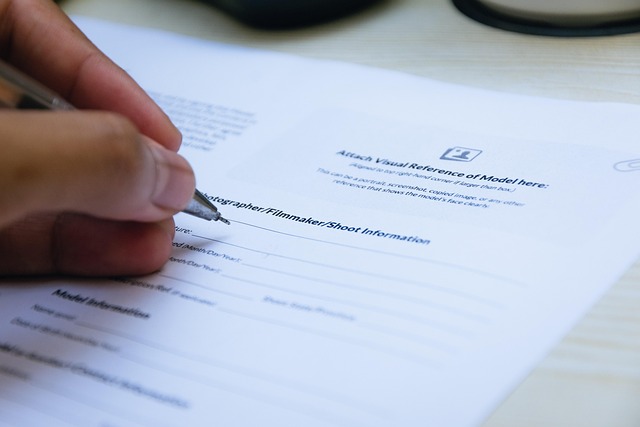Professional translation services for UK editorial columns are essential to ensure content accuracy, cultural relevance, and global engagement. By employing native-speaking linguists with a deep understanding of British English nuances, these services maintain the original tone, impact, and readability when reaching diverse audiences worldwide. Advanced machine translation tools, while efficient, require human post-editing to capture idioms, colloquialisms, and nuanced language. Building strong relationships with reputable translation providers is key to consistent, high-quality results tailored to UK editorial columns' unique style and terminology. The future of UK translation services looks bright with AI offering improved real-time translations, enhancing global communication without sacrificing editorial integrity.
In today’s globalized world, ensuring accurate and engaging translations is paramount, especially within the dynamic landscape of UK editorial columns. This article delves into the intricate process of cross-cultural communication, exploring strategies to enhance translation services. From understanding cultural nuances to leveraging technology, each step is crucial in maintaining integrity and quality. We examine the role of professional translators, native speaker reviews, and consistent media platform adaptation. Discover how these elements contribute to successful translations within UK editorial columns, while also looking ahead to future trends that promise to revolutionize the field.
- Understanding Cultural Nuances in Translation
- The Role of UK Editorial Columns in Cross-Cultural Communication
- Employing Professional Translation Services for Accuracy
- Engaging with Native Speakers for Quality Control
- Leveraging Technology to Enhance Translation Efficiency
- Ensuring Consistency Across Different Media Platforms
- Proofreading and Editing: Polishing the Final Product
- Building Trustworthy Relationships with Translation Providers
- Case Studies: Successful Translations in UK Editorial Columns
- Future Trends in Accurate and Engaging Translation Services
Understanding Cultural Nuances in Translation

In the realm of translation, going beyond mere word-for-word substitution is paramount, especially when navigating diverse cultural landscapes. UK editorial columns, for instance, require a deep understanding of both linguistic and cultural intricacies to ensure accurate and engaging translations. A simple phrase can carry different connotations or implied meanings across cultures, necessitating skilled translators who can interpret these subtleties.
For example, humor, idioms, and proverbs often depend on cultural context and may not translate seamlessly. Professional translation services recognize this challenge and employ linguists who not only excel in their native languages but also have a deep grasp of the source culture. By bridging these gaps, they ensure that UK editorial content retains its intended meaning, tone, and impact, fostering genuine connections with global audiences.
The Role of UK Editorial Columns in Cross-Cultural Communication

UK editorial columns play a pivotal role in facilitating cross-cultural communication, especially in today’s globalised world where content is increasingly consumed across borders. These columns, known for their insightful commentary and analysis on diverse topics, offer more than just words on a page; they act as cultural bridges connecting readers from different linguistic backgrounds. Accurate translation services for UK editorial columns are essential to ensure that the nuances, humor, and complex ideas expressed in these articles are preserved across languages.
Professional translators who specialize in UK editorial content must not only master language but also understand cultural subtleties to avoid loss of meaning or context. They enable non-English speakers to engage with British perspectives, fostering a deeper understanding between cultures. By ensuring precise translations, these services empower readers worldwide to appreciate the richness and diversity of UK media, making cross-cultural communication more effective and engaging.
Employing Professional Translation Services for Accuracy

In today’s globalised world, accurate and engaging translations are paramount for businesses and individuals alike, especially when navigating diverse markets like those in the UK. While machine translation tools have improved dramatically, they often struggle with nuances in language, cultural context, and idiomatic expressions. This is where professional translation services come into play, offering a bridge between languages that goes beyond simple word-for-word substitutions.
UK editorial column translations, for instance, require not just technical proficiency but also an understanding of the subtleties and humor unique to British English. Professional translators, often native speakers with extensive literary and cultural knowledge, ensure that the translated content not only conveys the intended meaning accurately but also resonates with the target audience. They pay meticulous attention to detail, ensuring that critical information is preserved and that the translation flows naturally and engagingly, much like its original counterpart in the source language.
Engaging with Native Speakers for Quality Control

Engaging with native speakers is an invaluable step in ensuring the accuracy and cultural relevance of translations, particularly for UK editorial columns. These columns often contain idioms, colloquialisms, and nuanced language that machine translations might struggle to capture. By involving native English speakers from the UK as part of the quality control process, translation services can refine the text to match local usage and tone. This direct engagement with the target audience ensures the translated column resonates with readers, maintaining the editorial integrity and readability of the original content.
UK-based translation services that prioritize this aspect often gain a competitive edge, delivering translations that go beyond mere word-for-word substitutions. It’s about understanding the cultural context and subtleties inherent in any language, ensuring the translated column not only conveys the same meaning but also flows naturally and engagingly for native speakers. This approach not only enhances reader experience but also strengthens the credibility of the translation service among UK editorial clients.
Leveraging Technology to Enhance Translation Efficiency

In today’s digital era, technology plays a pivotal role in enhancing translation efficiency for UK editorial columns and various other content types. Advanced machine translation (MT) tools have revolutionized the way we approach language barriers, making it faster and more accessible to produce high-quality translations. These technologies use neural networks and large language models to deliver accurate and contextually relevant results, ensuring that the original meaning and tone of the text are preserved.
By leveraging MT platforms, translation services in the UK can streamline their workflows, reduce turnaround times, and offer competitive rates. This technology also enables them to handle diverse linguistic pairs, catering to a wide range of client needs. Additionally, human translators can focus on post-editing tasks, refining the machine-generated text, thus ensuring accuracy and fluency while maintaining the editorial integrity of the UK columns.
Ensuring Consistency Across Different Media Platforms

In today’s digital age, content is king, and with diverse media platforms vying for attention, maintaining consistency across translations is more important than ever. UK editorial columns, for instance, demand precision when translated for online publications or international newspapers to avoid misinterpretation and maintain their impact. Translation services must therefore strive for not just linguistic accuracy but also cultural adaptability; a word-for-word translation rarely resonates across borders.
Professional translators understand the subtle nuances of language and culture, ensuring that the essence of the original column is preserved while adapting it for a new audience. This involves careful consideration of idioms, metaphors, and colloquialisms to create a seamless translation that engages readers in their native language without losing the author’s intended message or tone. Such meticulous attention guarantees a consistent brand image across all media platforms, fostering a global community that appreciates quality content regardless of its origin.
Proofreading and Editing: Polishing the Final Product

After completing a translation, the work isn’t always done. Proofreading and editing are essential steps in ensuring accurate and engaging translations. UK editorial columns often emphasize the importance of these final touches to catch any subtle errors or inconsistencies that may have slipped through the initial translation process. Skilled translators know that translating words is just the first part of the equation; they must also consider cultural nuances, idiomatic expressions, and natural flow in the target language.
During proofreading, professional translators meticulously review the translated text for grammatical accuracy, spelling errors, and awkward phrasing. They ensure that the content reads naturally and engagingly, much like it would in the source language. This meticulous attention to detail is what sets high-quality translation services apart, especially when competing with globalized communication in today’s digital era.
Building Trustworthy Relationships with Translation Providers

Building strong, trustworthy relationships is vital for any business offering or seeking translation services, especially within the competitive UK editorial columns market. It’s essential to select providers who understand the nuances of your industry and can deliver accurate, culturally sensitive translations that resonate with your target audience. One way to ensure this is by conducting thorough research and checking their track record, qualifications, and client testimonials.
Regular communication and clear expectations set the foundation for a successful partnership. Collaborating closely with translation providers allows you to provide detailed context, feedback, and revisions, ensuring the final product meets your high standards. Moreover, fostering open dialogue enables providers to adapt to any unique terminology or style preferences specific to UK editorial columns, enhancing the overall quality and consistency of translations.
Case Studies: Successful Translations in UK Editorial Columns

Successful translations in UK editorial columns showcase the power of precise communication across languages. Top translation services for UK editorial columns understand not just grammar and vocabulary, but also cultural nuances and the specific tone required for written content. For instance, a study revealed that a Spanish-language translation of a British newspaper article maintained the original’s witty humor and engaging style, appealing to Spanish-speaking readers without losing the essence of the UK voice.
These case studies highlight the importance of professional translation services in the editorial space. By employing experts who grasp the target audience’s language and cultural context, UK publications can ensure their content resonates with readers worldwide. This approach not only enhances accessibility but also fosters a deeper connection between diverse communities, enriching global discourse through accurate and engaging translations.
Future Trends in Accurate and Engaging Translation Services

The future of translation services in the UK looks bright, with technology playing a pivotal role in enhancing accuracy and engagement. Artificial Intelligence (AI) is set to revolutionize the industry, offering real-time translations with improved precision, especially for specialized content like UK editorial columns. AI models can learn from vast datasets, adapt to different writing styles, and even capture cultural nuances, making them invaluable tools for translators.
Additionally, machine learning algorithms can continuously refine their performance, ensuring consistent quality over time. This technology trend promises to bridge the gap between languages, cultures, and ideas, fostering better global communication. With AI-powered translation services, UK publishers and content creators can expect more efficient workflows, faster turnaround times, and cost-effective solutions without compromising on the integrity of their editorial work.
In the realm of cross-cultural communication, especially within the context of UK editorial columns, accurate and engaging translations are paramount. By understanding cultural nuances, leveraging technology, and building trustworthy relationships with providers, translation services can ensure consistent quality across media platforms. Engaging with native speakers for quality control further enhances precision. Looking ahead, future trends promise to revolutionize the industry, making translation more accessible, efficient, and effective for UK editorial columns and beyond.
